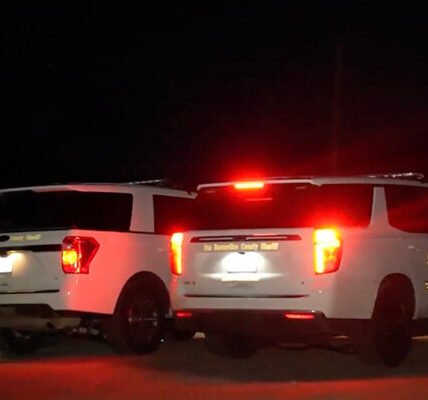Feleti Teo is named Tuvalu’s new prime minister after elections that ousted Taiwan supporter – The Associated Press
By ROD McGUIRK and TRISTAN LAVALETTE
Updated [hour]:[minute] [AMPM] [timezone], [monthFull] [day], [year]
MELBOURNE, Australia (AP) — Tuvalu’s former Attorney General Feleti Teo was named prime minister of the tiny South Pacific nation Monday after elections a month ago ousted the last government leader.
Teo was the only candidate nominated by his 15 lawmaker colleagues and Governor General Tofiga Vaevalu Falani declared him elected without a vote, government secretary Tufoua Panapa said in a statement.
The swearing-in ceremony for Teo and his Cabinet will be held later this week.
It was not immediately clear how the new government will affect China’s influence in the country of around 11,500 people halfway between Australia and Hawaii, though one expert said he does not expect any change in diplomatic recognition, at least in the short term.
The previous prime minister, Kausea Natano, and three of his eight ministers were not reelected in the Jan. 26 election.
Natano had wanted Tuvalu to remain one of only 12 countries that have official diplomatic ties with Taiwan, the self-governed democracy that China claims as its own territory.
Natano’s former finance minister, Seve Paeniu, who was considered a leadership contender, had argued for Tuvalu’s relationships with both Beijing and Taiwan to be reviewed.
In Beijing, Chinese Foreign Ministry spokeswoman Mao Ning urged Tuvalu to switch diplomatic recognition to China.
“We call on a handful of countries that still keep the so-called relationship with the Taiwan region to stand on the right side of history and make the right decision that truly serves their long-term interest,” she said.
Nauru, another Pacific island nation, cut ties with Taiwan and restored them with China last month.
A proposed security treaty between Tuvalu and Australia could be rewritten or scrapped under the new government. The treaty, announced in November last year, commits Australia to help Tuvalu in response to major natural disasters, pandemics and military aggression.
Australia offered Tuvaluans a lifeline to help residents escape the rising seas and increased storms brought by climate change. Tuvalu’s low-lying atolls make it particularly vulnerable to global warming. Australia would initially allow up to 280 Tuvaluans to come to Australia each year.
The treaty, which has yet to be ratified, also would give Australia veto power over any security or defense-related agreement Tuvalu wants to make with any other country, including China.
Tuvalu lawmaker Enele Sopoaga, who was prime minister until the previous election in 2019, opposes the treaty.
Australian Prime Minister Anthony Albanese mentioned the treaty when he congratulated Teo on his election.
“Australia deeply values our relationship with Tuvalu, in the spirit of the Falepili Union,” Albanese said on social media, referring to the treaty, which is formally known as the Australia-Tuvalu Falepili Union.
“Tuvalu can count on Australia’s support and I look forward to working with PM Teo,” Albanese added.
Before Teo was announced prime minister, Meg Keen, director of the Pacific Island Program at the Lowy Institute, a Sydney-based think tank, said the new government would review the treaty and “put their own stamp on it.”
“My view is refinements can be negotiated and the deal has a good chance of proceeding,” Keen said.
George Carter, an Australian National University expert on international politics, said Teo had received support from a majority 10 of the 16 lawmakers within two weeks of the election.
Carter said Teo’s supporters want Tuvalu to continue relations with Taiwan and that a change of allegiances to Beijing is unlikely in the near future.
“I think he will try to not rock the boat from the current considerations in terms of support for Taiwan for now. But things could change,” he said.
Carter said Teo had told supporters that Sopoaga, the former prime minister, and Paeniu, the former finance minister, would be excluded from his Cabinet.
The U.S. and China are jockeying for influence in the South Pacific. A U.S. Coast Guard cutter patrolled waters around Kiribati for six days earlier this month with members of the nation’s maritime police, during which it twice boarded Chinese fishing boats, the Coast Guard said last weekend. “The crew found the vessels compliant with all requirements,” a statement said.
_____
Lavalette contributed from Perth, Australia. Associated Press writer Ken Moritsugu in Beijing contributed.
